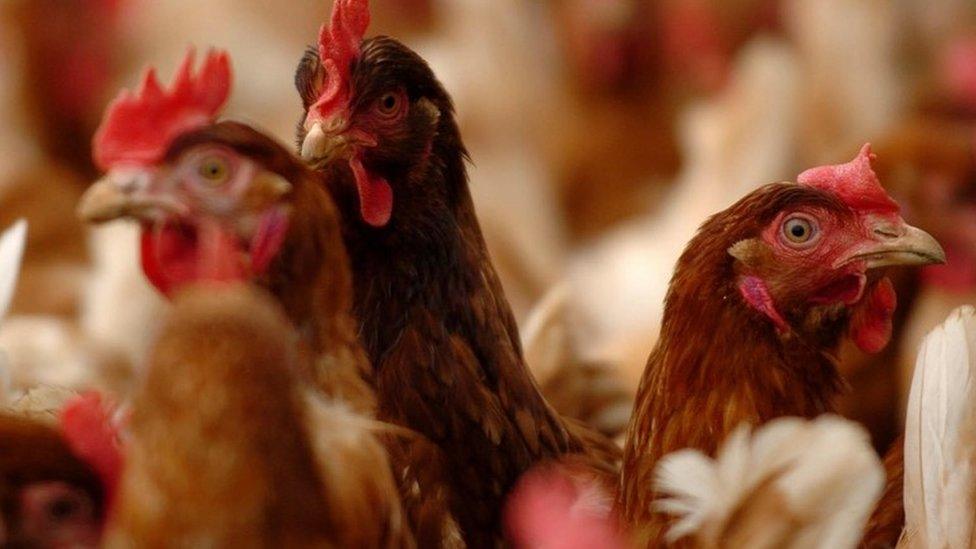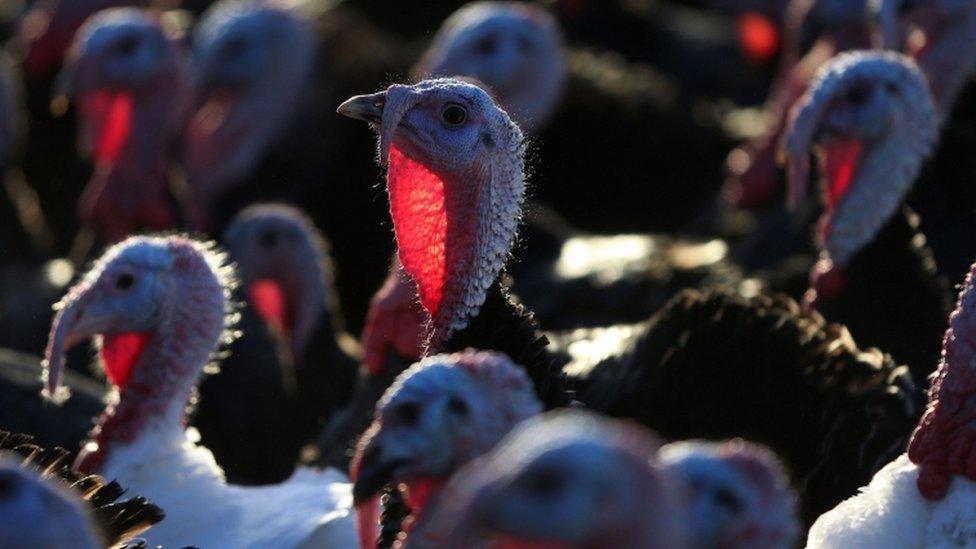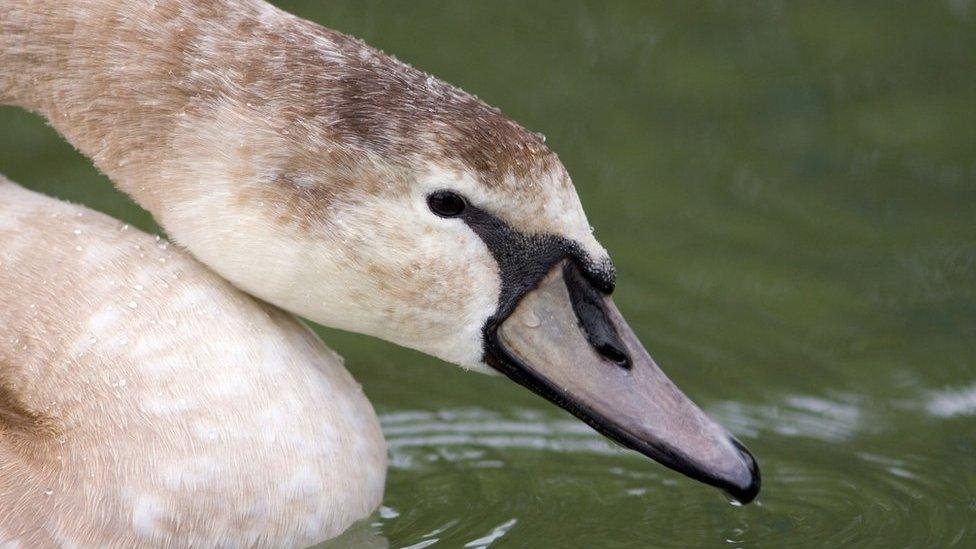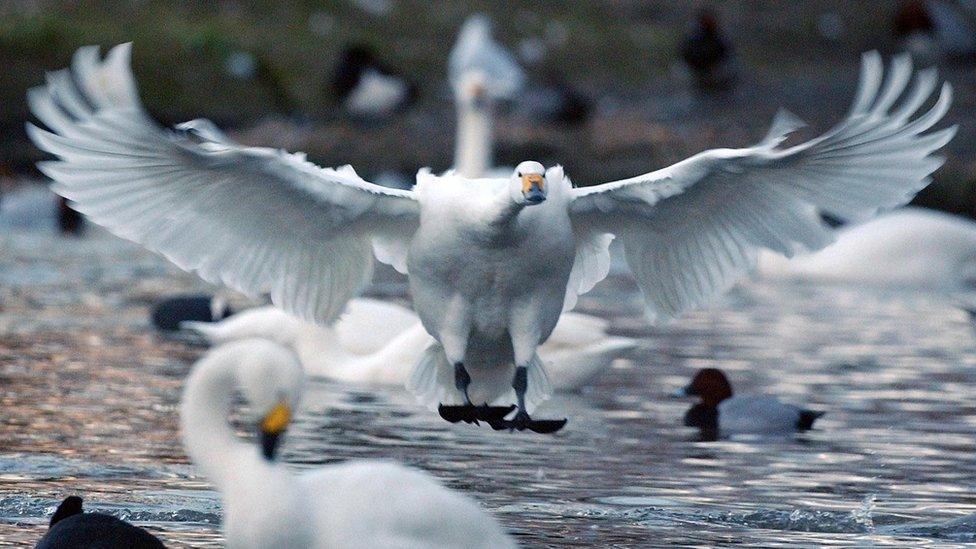County Antrim poultry flock to be culled after bird flu detected
- Published

A large poultry flock is to be culled in County Antrim, after an outbreak of bird flu.
Thirty thousand birds are to be destroyed as a precautionary measure at the farm near Clough.
It is the first time the disease has been detected in a commercial flock in Northern Ireland since 1998
The outbreak affected a business rearing young hens for egg production and it is understood there are other poultry farms in the area.
It will mean certain movement restrictions in 3km and 10km protection zones around the affected farm, with potential trade implications for other poultry businesses there.
Bird flu is a notifiable disease carried by migratory wild birds. It can spread quickly and rapidly causes death in affected flocks.
Restrictions were put in place earlier in the winter in an attempt to prevent transmission to commercial flocks which make up a key part of Northern Ireland's important agri-food industry.
Since 23 December there has been a requirement for all poultry flocks, no matter how small, to be housed.
Public health advice is that bird flu- or avian influenza - poses a low risk to human health and the Food Standards Agency advises that it does not present a food risk.
'Act fast'
Poultry is a £750m a year industry in Northern Ireland which employs 5,000 people. There are around 24 million birds on 650 farms, most of them in counties Tyrone and Antrim.
The disease has been detected in a number of wild birds in Northern Ireland this winter and in commercial flocks in both Great Britain and in the Republic of Ireland.
In the short term it will mean no movements on or off poultry farms in the area, with a licensing system being introduced in the coming days.
Poultry products from outside the restricted zone can continue to be traded with EU member states and products from within the zones can be sold on home markets.
Other countries will apply their own rules depending on their assessment of the situation.
Northern Ireland's chief vet Robert Huey repeated his message for poultry owners to apply rigorous biosecurity measures.
"Given the level of suspicion and the density of the poultry population around the holding, it is vital that as a matter of precaution, we act now and act fast," he said.
"I have therefore taken the decision to cull the birds as well as introduce temporary control zones around the holding in an effort to protect our poultry industry and stop the spread of the virus.
"An epidemiological investigation is under way to determine the likely source of infection and determine the risk of disease spread."
Related topics
- Published29 November 2020

- Published29 November 2020

- Published14 November 2020
